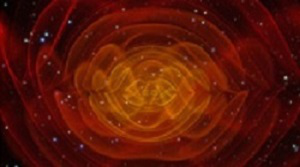Speaker
Chad Galley
(Jet Propulsion Laboratory, California Institute of Technology)
Description
Solving the equations of motion describing a compact binary's inspiral dynamics is not easy because of stringent accuracy requirements and the long duration of the orbit. In many cases, this can be achieved using numerical integration methods but such an approach is often a computational bottleneck for gravitational wave data analysis applications like parameter estimation. Analytically, some progress can be made by averaging out the shorter time scales in the problem. However, such adiabatic approximations are often not systematic, are difficult to estimate the domain of validity of the approximate solution, and entail ambiguities that make it difficult for assessing accuracy to truth solutions. I discuss some recent and ongoing work that aims to solve these problems using renormalization group theory methods. This approach does not require or utilize any averaging procedures so that the resulting solutions describe the binary's real-time orbital configuration at every instant. The basic idea rests on naive perturbation theory which, because of radiation reaction and self-force, produces secularly growing terms in time that renormalize the initial data parameters. This process generates a flow in time (i.e., the inspiral) which is described by the renormalization group equations that, in many cases, can be solved analytically. Being based on perturbation theory, it is straightforward to provide formal errors for the validity of the resulting resummed perturbative solution. I introduce the concepts and steps by sketching out the calculation for post-Newtonian inspirals. Other astrophysical applications, including tidal dissipation and spin-locking, may be discussed if time permits.
Primary author
Chad Galley
(Jet Propulsion Laboratory, California Institute of Technology)
Co-author
Ira Rothstein
(Carnegie Mellon University)

